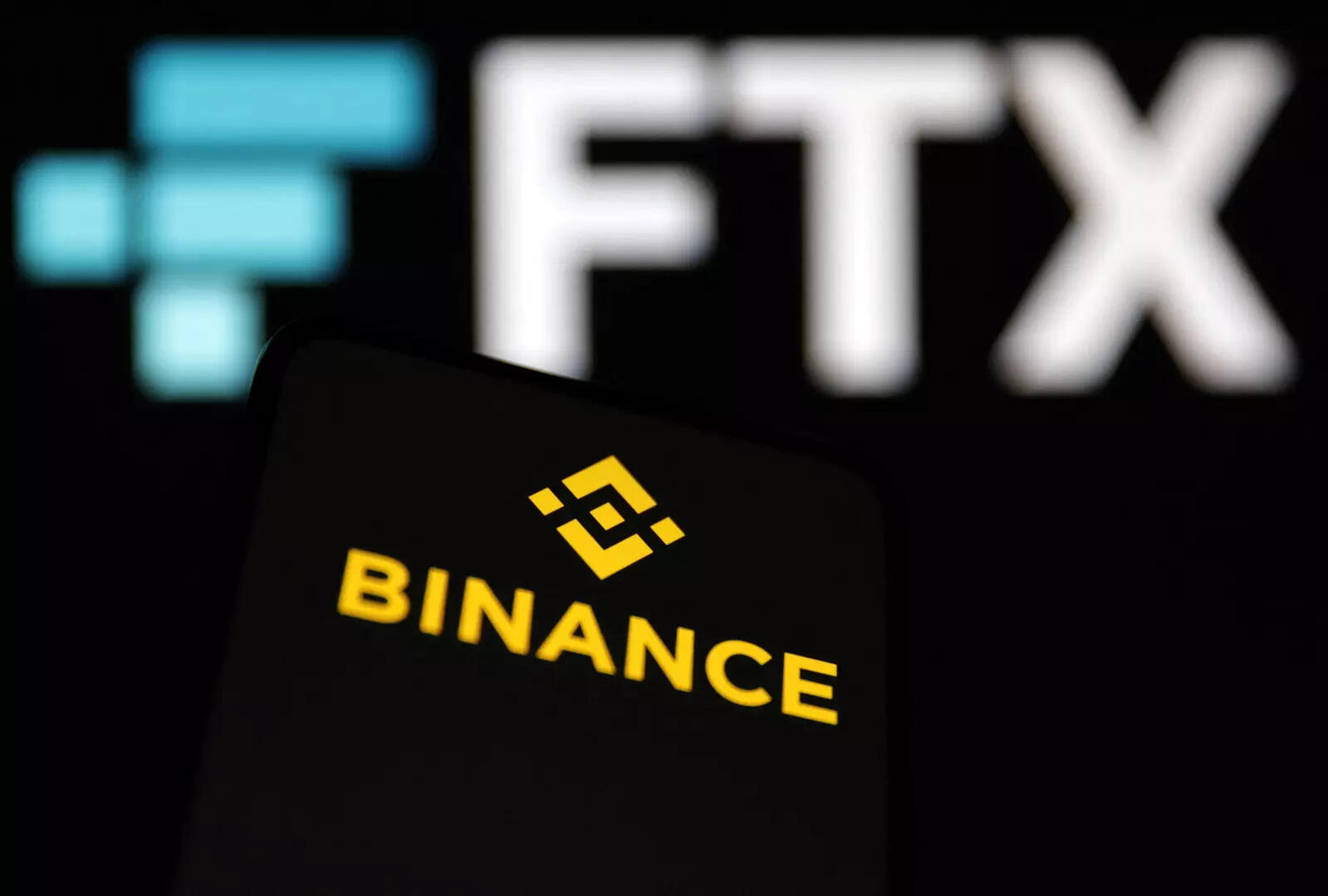
In a surprising turn of events, Binance has backed out from the FTX bailout, leaving the future of the struggling exchange uncertain. Changpeng Zhao, the CEO of Binance, initially offered to take over FTX.com to prevent further cryptocurrency contagion. However, the abrupt withdrawal of Binance has raised questions about the financial stability of FTX and the fate of its customer funds. Additionally, the involvement of regulatory bodies like the SEC and CFTC adds complexity to the situation, with discussions centered around appropriate regulation and the potential collapse of FTX as a significant player in the market. As the story continues to unfold, the broader implications for the crypto industry and the longevity of both FTX and Binance loom large.

This image is property of i.ytimg.com.
Background
Changpeng Zhao, the CEO of Binance, recently made an offer to take over FTX.com, a popular cryptocurrency exchange. This news sent shockwaves through the industry, as it would have potentially consolidated two major players in the market. However, Binance ultimately decided to walk away from the deal, leaving FTX’s future uncertain.
The offer raised many questions about the state of FTX’s assets and liabilities. If the acquisition had gone through, it could have left a significant hole in FTX’s finances. Additionally, concerns were raised about the safety of customer funds on the platform. With the potential change in ownership, there were worries about how these funds would be protected and if there would be any implications for their withdrawal.
The regulatory landscape surrounding cryptocurrencies is constantly evolving, and this potential acquisition sparked further discussions on the subject. Regulators were concerned about the impact of such a merger and the implications it could have for the market as a whole. The rapid growth and influence of cryptocurrency exchanges have raised red flags in terms of investor protection and market stability.
Gary Gensler’s Statement
Gary Gensler, the chairman of the U.S. Securities and Exchange Commission (SEC), made a statement regarding the offer and subsequent withdrawal. He mentioned that the SEC had been requesting discussions with both FTX and Binance for some time. This statement shed light on the fact that the SEC has had concerns about these exchanges for a while and was keen on engaging in dialogue to address these concerns.
One of the key issues highlighted by Gensler was the appropriate regulatory authority for these exchanges. With FTX and Binance operating globally and serving customers from various jurisdictions, the regulatory landscape becomes complex. Gensler emphasized the need for clear guidelines and oversight to ensure that these exchanges operate within regulatory boundaries and do not pose a risk to investors.
Gensler’s statement also raised questions about the implications for FTX’s spot and futures markets. As one of the leading cryptocurrency exchanges, FTX’s spot and futures markets have gained significant popularity. The uncertainty surrounding FTX’s future and potential regulatory actions could have a significant impact on these markets. Traders and investors may seek alternative platforms or be hesitant to engage in trading until more clarity is provided.

This image is property of cloudfront-us-east-2.images.arcpublishing.com.
FTX’s Membership in ISDA
One aspect that added complexity to the situation was FTX’s membership in the International Swaps and Derivatives Association (ISDA). As a member, FTX had access to various services provided by ISDA, including the use of clearinghouses for derivative trades. Clearinghouses play a crucial role in ensuring the integrity and stability of markets, as they act as intermediaries between buyers and sellers, ensuring the completion of trades and mitigating counterparty risk.
FTX, however, had attempted to eliminate the need for clearinghouses within its platform by proposing a peer-to-peer settlement model for derivative trades. This move raised concerns among market participants, who questioned the long-term viability of the markets without the involvement of clearinghouses. Clearinghouses provide important safeguards and risk management mechanisms, so the absence of these tools could introduce more uncertainty and potential risks for traders and investors.

This image is property of playtoearn.net.
SEC’s Response
The SEC’s response to the FTX acquisition offer and subsequent withdrawal also has broader implications for token regulations. As the regulatory landscape continues to evolve, it is crucial for regulators to address the challenges posed by the growing popularity of tokens and cryptocurrencies. The SEC’s actions in this case could set a precedent for future regulatory steps concerning similar acquisitions and partnerships within the cryptocurrency industry.
The SEC’s involvement also raises questions about the impact on the value and trading of the token associated with FTX. Investors and traders may be cautious about engaging with the token until more clarity is provided regarding its regulatory status. The value of the token could be directly influenced by regulatory actions, and its trading may face restrictions or additional scrutiny.
Looking ahead, the future outlook for similar tokens and exchanges remains uncertain. The SEC’s response to the FTX case could shape the regulatory approach towards other exchanges and their associated tokens. Market participants will closely monitor the developments and regulatory actions, as they seek clarity and guidance in navigating the evolving cryptocurrency landscape.
This image is property of etimg.etb2bimg.com.
Conclusion
The potential takeover offer from Binance and subsequent withdrawal by FTX has shed light on some of the challenges and concerns faced by the cryptocurrency industry. The issues surrounding FTX’s assets, liabilities, and customer funds have highlighted the importance of regulatory oversight and investor protection. The regulatory landscape is constantly evolving, and it is crucial for exchanges and market participants to comply with regulations and engage in discussions to address concerns.
Gary Gensler’s statement and the SEC’s response further emphasize the need for clear guidelines and appropriate regulatory authority for cryptocurrency exchanges. The involvement of ISDA and the potential elimination of clearinghouses within FTX’s platform raise questions about the long-term viability and stability of the markets. The SEC’s actions and regulatory decisions in this case could have implications for token regulations and the value and trading of associated tokens.
As the cryptocurrency industry continues to grow and evolve, it is essential for regulatory bodies and market participants to work together to address concerns and ensure the integrity and stability of the market. Clear guidelines, investor protection measures, and ongoing dialogue between regulators and exchanges are crucial for the long-term success and sustainability of the cryptocurrency ecosystem.




